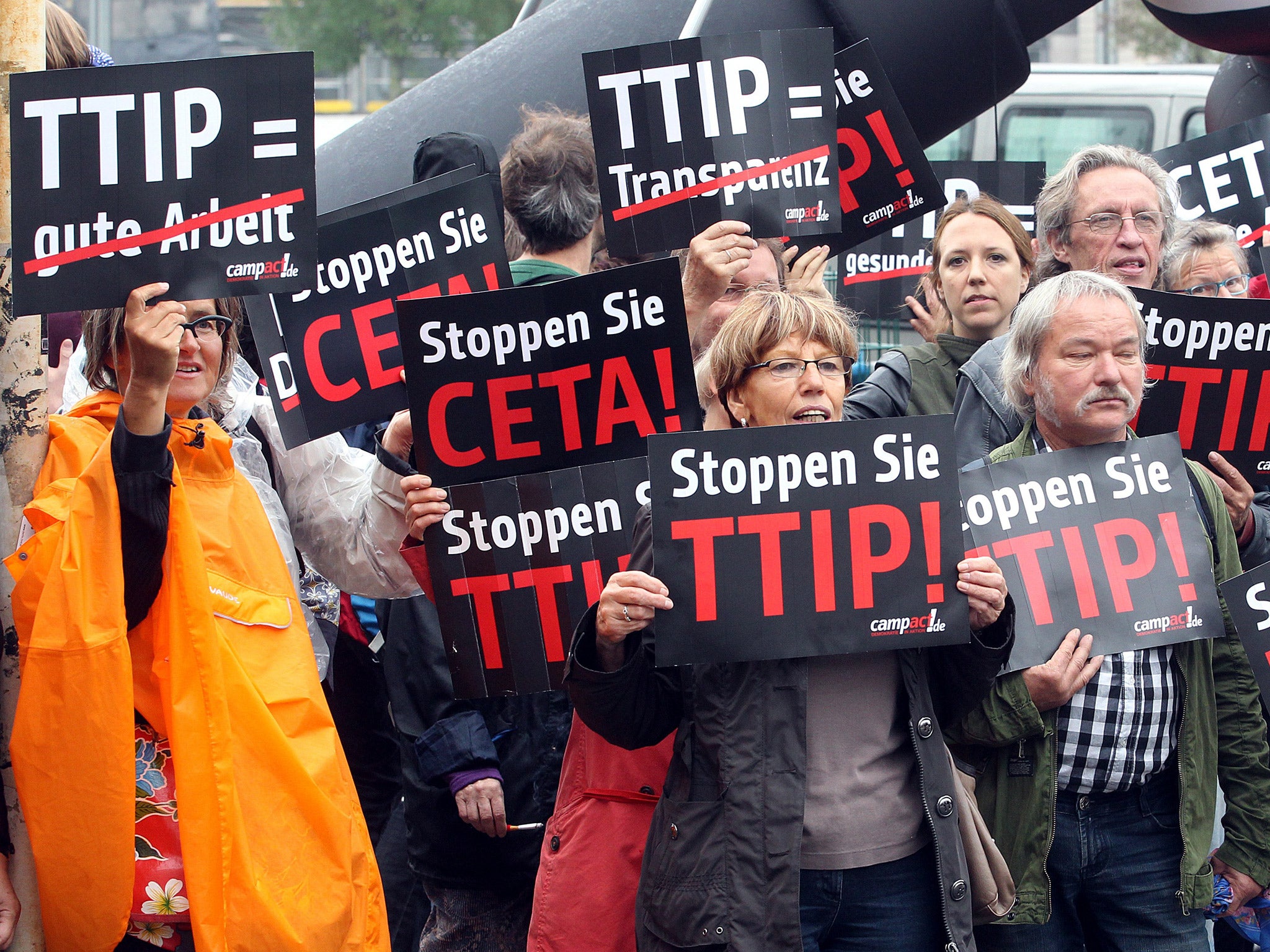The Independent's journalism is supported by our readers. When you purchase through links on our site, we may earn commission.
What is TTIP and why does Cameron want to sign the biggest trade agreement in history?
The Tory plan that was curiously absent from the election agenda

Cameron pledged his support to the Transatlantic Trade and Investment Partnership, otherwise known as TTIP, right from the start. But when it came to the election, TTIP was firmly off the agenda.
In fact, negotiations have always been kept on the DL. One MEP wrote an entire op-ed on the fact that she’s seen the 'undemocratic' deal, but can’t reveal any of its contents. Another study said even EU representatives in Brussels think their European Commission colleagues are making deals behind closed doors.
We could be about to hear more as Cameron tries to secure his legacy by pushing through the biggest trade deal in history. Here’s what you need to know.
TTIP is a massive trade agreement between the US and the EU. It aims to cut tariffs, or the tax on imported goods, which will mean an extra $10 billion going into the UK economy a year, according to one study.
Sounds good, is it?
Obama once said it would result in more jobs on both sides of the Atlantic – a statement which is now thought to be untrue. However it may bring £85 billion a year to Europe and £68 billion a year to the US – the equivalent of £393 per family in the EU and £473 in the US. Wages could go up by 0.5 per cent in the EU and 0.4 per cent in the US, according to one study.
Is all that money coming from lower tariffs?
No, TTIP also aims to harmonise laws on health and safety and the quality of goods on either side of the Atlantic, so goods like cars and cheese can be traded more freely.
Problem is, the EU and the US have very different laws. Car bumpers are designed for a more pedestrian environment in Europe, while car horns have to be labelled ‘horn’ in the US, a law that would be difficult to enforce in Europe because of the many different languages in the EU.
In cheese controversies, the EU argues that the US should not be allowed to use names like feta, parmesan and gruyere because they are not authentic. It says feta must come from Greece and parmesan from Parma. That was slammed as an ‘absurd European initiaitive’ by US senators, unsurprisingly.
The NHS is under threat from the giant US-EU trade agreement known as TTIP, according to unions
Is that the worst of it?
There’s more. The most controversial aspect of TTIP is something called the Investor-State Dispute Settlement, or ISDS, which gives big corporations more power against governments. ISDS allows big companies to argue disputes outside of a normal court system.
This has sparked fears that big healthcare corporations could sue the UK government if they thought the NHS had an unfair advantage. The EU has hit back, promising state-supported healthcare, like the NHS, is protected.
Another big difference is banking regulation, which is stricter in the US than in Europe. Europe has stalled in agreeing a way forward for services like banking, which is tricky because services account for almost 40 per cent of transatlantic trade
Barack Obama faces a Congressional backlash over TPP
Sounds like there’s a lot to talk about. When will it be sorted by?
It was supposed to be sorted by the end of 2015, but we may be lucky to see an agreement by the end of Obama’s time in office, 2017. At the same time, Obama is trying to push through a Trans Pacific Partnership with 11 countries (but not China). That’s not going too well either.
Join our commenting forum
Join thought-provoking conversations, follow other Independent readers and see their replies
Comments